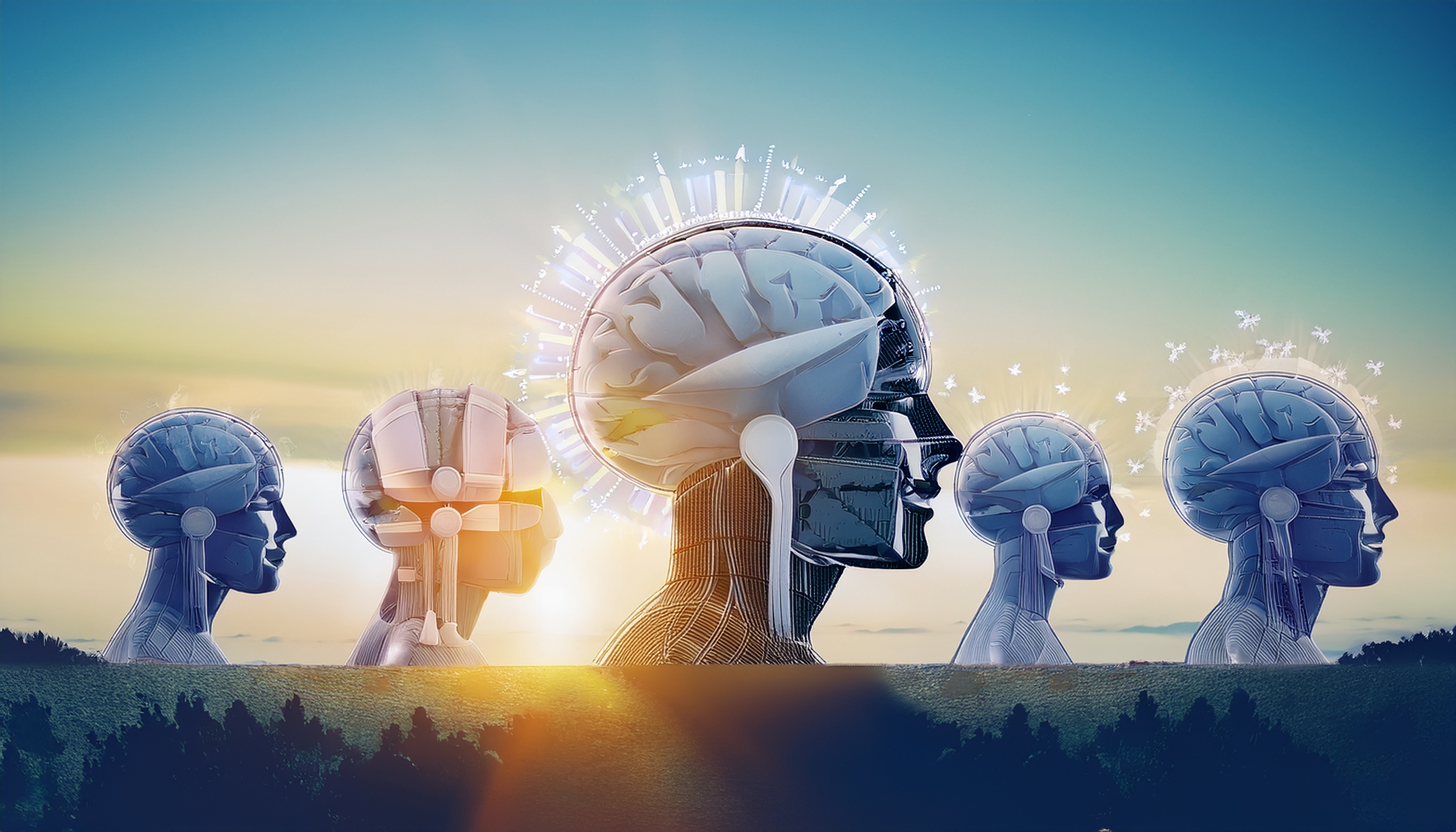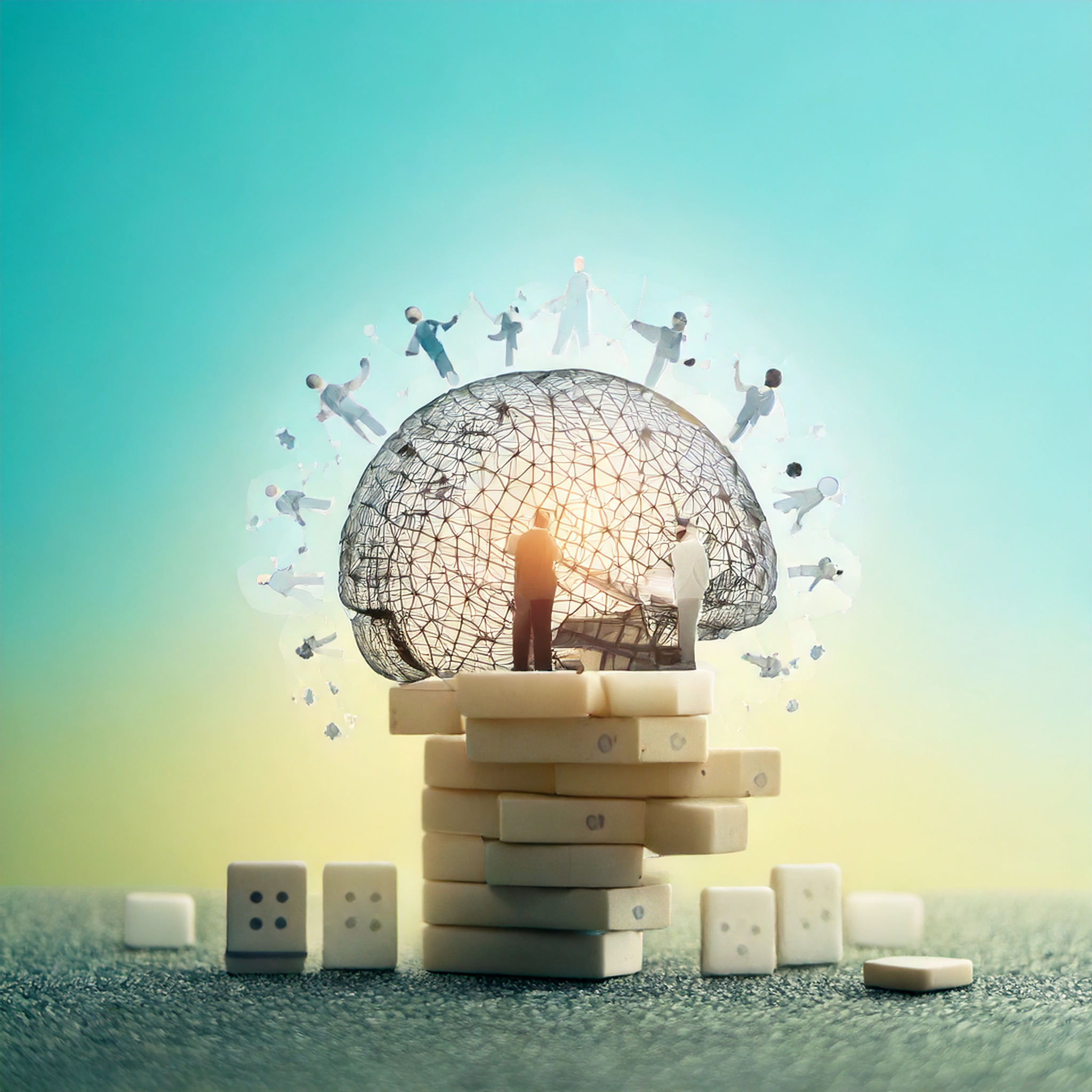The Evolution of Artificial Intelligence: Augmenting and Transforming Collective Intelligence 🚀🤖🌍
Introduction
Artificial Intelligence (AI) has traditionally been defined as the field concerned with developing systems that emulate human intelligence. However, as AI advances, this definition may no longer suffice. Modern AI does not merely replicate the cognitive abilities of an individual but synthesises the collective intelligence of humanity. This discourse examines whether AI primarily functions as an augmentation of human cognition or as a transformative force, ultimately arguing that it does both. AI reconfigures cognitive processes, broadens the landscape of solvable problems, and introduces unprecedented challenges and opportunities. AI's role in reshaping human cognition is unparalleled, opening new frontiers in interdisciplinary research, problem-solving, and innovation. 🧠✨🔍
The Nature of Artificial Intelligence
AI encompasses computational techniques that enable machines to perform tasks requiring human-like intelligence, such as decision-making, problem-solving, and natural language understanding. Modern AI, particularly machine learning models, does not exist as an independent intelligence; rather, it serves as a derivative of collective human knowledge, aggregating vast datasets and refining insights through algorithmic processing. This process allows AI to extract meaning, recognise patterns, and provide insights that would be otherwise impossible to derive from isolated human cognition alone. 📊📡🖥️

AI as Collective Intelligence
Unlike human cognition, AI operates on an unparalleled scale and at extraordinary speeds. While historical polymaths such as Leonardo da Vinci and Isaac Newton were capable of synthesising diverse knowledge domains, AI surpasses them in terms of raw data processing and pattern recognition. However, it fundamentally lacks human faculties such as intuition, emotion, and subjective experience. AI operates by leveraging collective human inputs, functioning as a sophisticated aggregator rather than an independent thinker. 🏛️🔢🚀
The term Collective Intelligence more accurately encapsulates AI’s function, as it distills vast quantities of human-generated knowledge. While it does not engage in human-like reasoning, AI can extract connections and produce insights that exceed the analytical capacity of individuals or even expert communities. This ability significantly enhances decision-making, research, and problem-solving capabilities across industries. 🔗🤝🌟
Augmented Collective Intelligence: Enhancing Human Cognition
How AI Enhances Human Capabilities
AI functions as a cognitive amplifier, enhancing human intelligence in several ways:
- Computational Efficiency – AI can process and analyse massive datasets in real-time, optimising decision-making in domains such as healthcare, finance, and scientific research.
- Advanced Pattern Recognition – AI identifies intricate correlations within data that might elude human analysts, such as early-stage disease detection or predictive economic modelling.
- Interdisciplinary Knowledge Integration – AI bridges gaps between diverse fields, fostering novel discoveries by synthesising concepts from physics, biology, and computational sciences.
- Persistent Knowledge Expansion – Unlike human memory, AI continuously refines its knowledge base, ensuring retention and iterative learning without degradation over time.
- Collaborative Creativity – AI-generated content inspires human innovation by suggesting novel artistic, literary, and musical compositions. 🎨💡🤯
Additionally, AI facilitates real-time translation, enhancing cross-cultural communication and broadening global accessibility to information. The integration of AI into daily workflows has fundamentally changed knowledge dissemination and access, ensuring that both professionals and the general public benefit from its expanding applications.
AI’s Role in Problem-Solving
The introduction of AI-driven analytics and simulation tools has significantly expanded the frontiers of research and technological development. AI has accelerated breakthroughs in scientific fields, such as protein structure prediction and climate modelling, that were previously constrained by computational limitations. 🧪🌍🔬
Moreover, AI's impact on fields such as law, engineering, and business strategy is undeniable. Predictive analytics allows companies to optimise market strategies, while AI-driven legal research enhances case preparation and judicial analysis. AI’s deep learning capabilities are also transforming engineering practices, enabling automated design optimisations that improve efficiency and sustainability.

AI as a Transformative Force
Reshaping Human Cognition
Beyond augmentation, AI is fundamentally redefining cognitive landscapes by altering problem-solving methodologies, creative exploration, and learning paradigms. Just as the advent of written language revolutionized knowledge transmission, AI is restructuring intellectual frameworks. 📖💭🔄
Key areas of transformation include:
- Scientific Research: AI-driven hypothesis testing accelerates discovery cycles, reducing reliance on empirical trial-and-error methods.
- Creative Industries: AI-generated literature, music, and visual art challenge traditional conceptions of authorship and originality.
- Data-Driven Decision-Making: AI-powered analytics inform business strategies, healthcare diagnostics, and public policy frameworks.
- Personalised Learning: AI-based tutoring systems and adaptive curricula redefine how knowledge is disseminated and acquired. 🎵📚🤔
Ethical and Societal Considerations
The transformative potential of AI introduces complex ethical dilemmas:
- Algorithmic Bias and Fairness: Ensuring AI systems do not perpetuate or exacerbate societal biases remains a critical concern.
- Cognitive Over-Reliance: Excessive dependence on AI-generated insights may diminish human critical thinking and independent reasoning skills.
- Reconfiguration of Work and Society: As AI automates cognitive and manual tasks, there is an increasing need to redefine employment roles and skill sets. ⚖️🛠️🤖
The Future of AI and Human Intelligence
Expanding Creative and Intellectual Horizons
AI’s continuous evolution expands human potential by unlocking novel avenues for exploration. Imposing artificial constraints on AI research would curtail innovation and scientific progress. Instead, efforts should focus on leveraging AI to address global challenges and improve human well-being. 🌍🔭🧑🚀
AI as a Collaborative Intelligence
Rather than replacing human cognition, AI should be conceptualised as a catalyst for collective problem-solving. By integrating AI into fields such as medicine, environmental sustainability, and education, humanity can harness its capabilities to drive transformative progress. AI has the potential to identify solutions for pressing global issues, such as climate change, energy consumption, and food security, by offering data-driven insights and predictive modelling. 🏥🌱📊
Conclusion
AI functions both as an augmentative and transformative force in human cognition. While it enhances analytical capabilities and computational efficiency, it also redefines intellectual engagement and problem-solving methodologies. AI does not impose limits on intelligence but rather extends the boundaries of human potential. The priority should be to utilise AI as a tool for advancing knowledge, creativity, and ethical progress, ensuring that it aligns with humanity’s evolving needs and aspirations. 🌟🚀🔮
